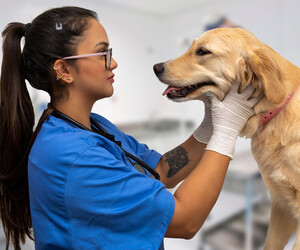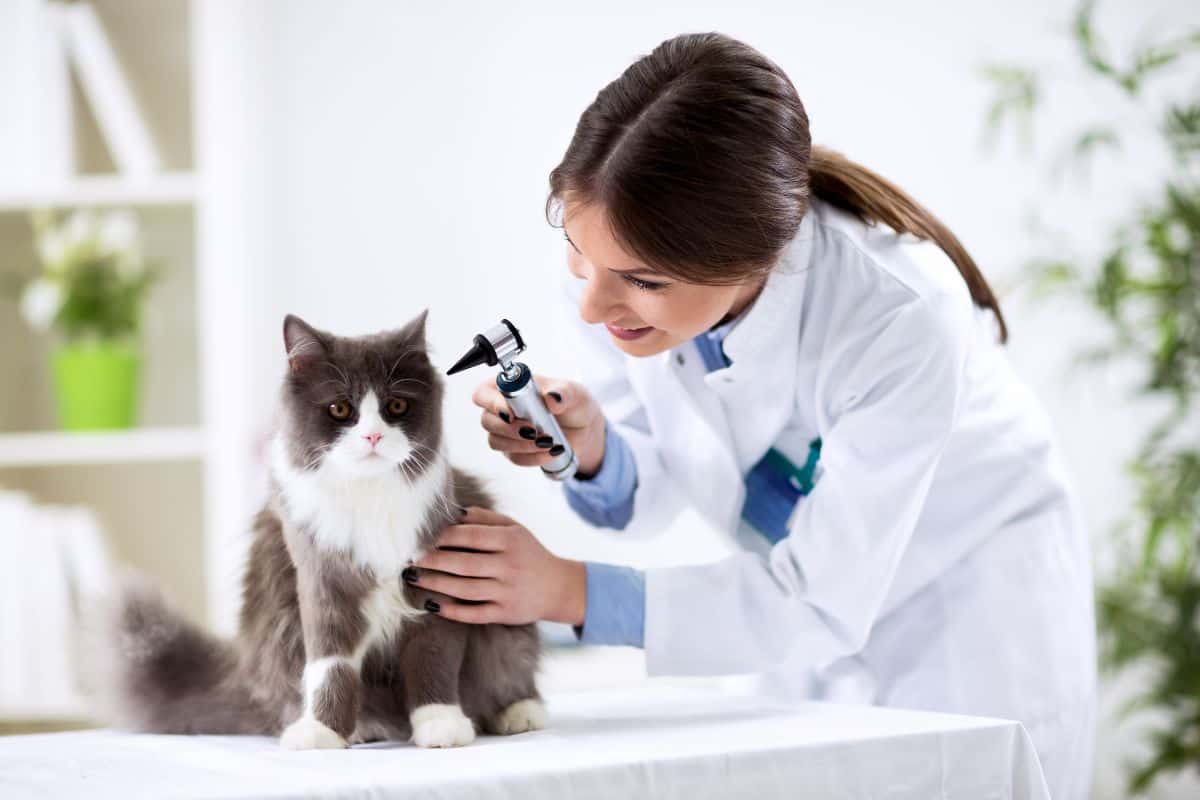Just How Pet Health Checkups Help Spot Early Indications of Health Problem and Maintain Your Pet Healthy And Balanced
Just How Pet Health Checkups Help Spot Early Indications of Health Problem and Maintain Your Pet Healthy And Balanced
Blog Article
Inoculation Guidelines From Your Trusted Veterinarian
Vaccination guidelines supplied by your relied on vet play an important function in safeguarding your family pet's wellness and wellness. Core vaccines are basic for all animals, while non-core vaccines can be tailored to ecological direct exposures and details way of livings. Understanding the subtleties of inoculation routines, which begin as early as 6 to 8 weeks, is vital for ideal protection. Furthermore, attending to usual misunderstandings bordering vaccinations can even more enhance family pet proprietors' self-confidence in these safety nets. As we explore these critical facets, it becomes increasingly clear why routine examinations with your vet are crucial for educated decision-making.

Value of Vaccinations
Vaccinations play an essential duty in safeguarding animals against a series of avoidable conditions. By boosting the immune system to identify and combat certain virus, injections dramatically reduce the incidence of contagious conditions that can affect a pet's health and longevity. Not only do vaccinations secure private animals, but they also add to herd immunity, therefore decreasing the overall prevalence of illness in the pet dog population.
Timely vaccinations assist to alleviate the spread of conditions such as rabies, parvovirus, and distemper, which can have severe consequences for both people and animals. Vaccinations are usually a requirement for boarding facilities, brushing solutions, and dog parks, making them important for those that desire to socialize their family pets.

Core Vaccines for Animals
While the particular inoculation needs of animals can vary based on private variables, core injections are globally suggested to protect against one of the most typical and significant illness (Emergency Vet). Core vaccines are those deemed essential for all family pets, no matter their way of life or geographic area, as they protect versus very infectious and possibly deadly ailments
For canines, the core injections consist of those for canine distemper, parvovirus, adenovirus (liver disease), and rabies. Adenovirus can result in liver illness, while rabies is a zoonotic disease that presents a danger to both pet dogs and human beings.
In cats, core injections encompass feline panleukopenia, feline calicivirus, feline herpesvirus (rhinotracheitis), and rabies. Feline panleukopenia is a very infectious viral disease that impacts the immune system and intestines. Calicivirus and herpesvirus are major factors to upper respiratory infections in pet cats, while rabies continues to be a critical worry for public health.
Talk to your veterinarian to guarantee your pets obtain their core vaccinations on timetable.
Non-Core Vaccines Explained
Non-core injections are customized to address details threats associated with a pet's direct exposure, environment, and lifestyle to certain diseases. Unlike core vaccines, which are widely recommended for all pet dogs, non-core injections are thought about based on private scenarios. These vaccinations are specifically essential for family pets that may experience unique virus as a result of their geographical place, travel practices, or tasks.
Examples of non-core vaccines consist of those for Bordetella bronchiseptica, which is connected to kennel cough, and Lyme disease, triggered by ticks. Pets that frequently interact with various other pets, such as those in boarding facilities, dog parks, or brushing atmospheres, might gain from Bordetella vaccination. If you live in an area where Lyme disease is prevalent, vaccinating against this disease can be a sensible choice for outdoor-loving canines.
Various other non-core vaccines may include those for leptospirosis, canine flu, and feline leukemia, depending on the specific risk variables present. It is vital to have an extensive conversation with your vet regarding your pet dog's lifestyle and the potential requirement for these vaccinations, making certain a tailored inoculation approach that best protects your furry friend.
Inoculation Schedule Overview

As pets develop, it is essential to abide by the advised booster vaccinations. Vet Enterprise. For grown-up animals, core injections are usually offered each to three years, depending upon the particular injection and neighborhood policies. Non-core vaccinations might be encouraged based upon way of living aspects and regional illness prevalence, necessitating a tailored method
Routine vet exams are essential for updating vaccination routines. Your veterinarian can give guidance on one of the most proper booster shots for your animal, considering age, health and wellness status, and environmental risks. By remaining proactive and informed, family pet proprietors can guarantee their furry companions obtain timely and effective vaccinations, therefore safeguarding their health and wellness throughout their lives.
Usual Myths Concerning Injections
Misconceptions about animal vaccinations can bring about complication and reluctance among pet proprietors pertaining to the booster shot procedure. One common myth is that vaccinations are unneeded for interior pets. While it's real that indoor pets encounter reduced risks, they are not totally immune to conditions, as microorganisms can be presented through different ways, consisting of human garments and various other family pets.
An additional misconception is that injections can create the conditions they aim to stop. In truth, many vaccines have inactivated or attenuated virus, which can not create illness in healthy and balanced animals. Some animal owners also believe that their pet dogs ought to not be immunized if they are currently healthy and balanced; however, inoculations are a positive measure that assists prevent the start of disease.
Additionally, several pet dog proprietors are afraid that injections will certainly lead to lasting wellness complications. While side results can happen, they are generally mild and momentary. The advantages of inoculation-- protecting animals from potentially serious conditions-- far outweigh the dangers. Understanding these typical misconceptions is essential for responsible family pet ownership and ensuring the health and wellness of your hairy find out this here companions. Always consult your vet for exact information customized to your pet's certain requirements.
Conclusion
In recap, adherence to inoculation standards is critical for guaranteeing the health and durability of pet dogs. Eliminating usual misconceptions bordering inoculations further reinforces the relevance of notified decision-making in pet care.
Not just do inoculations protect private pets, yet they also add to herd immunity, thus lowering the total occurrence of conditions in the animal population.
Mistaken beliefs about pet vaccinations can lead to complication and unwillingness amongst pet dog owners pertaining to the immunization procedure. While it's real that indoor pets face lower threats, they are not entirely immune to illness, as virus can be introduced with various ways, consisting of human clothing and various other animals.
Some animal owners also think that their animals should not be immunized if they are currently healthy; however, vaccinations are a proactive step that helps protect against the start of illness.
The advantages of inoculation-- shielding pets from possibly linked here dangerous conditions-- much exceed the dangers.
Report this page